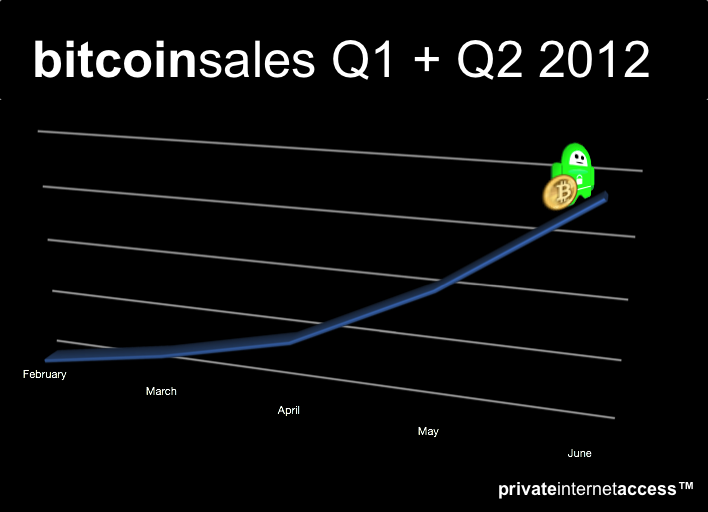Interview with nanotube, founder of Bitcoin-OTC, IRC Bitcoin market, Multisigs and security -
peer to peer (P2P), crypto anonymous currency with cash properties as known as Bitcoin is quickly became a formidable average payments in contemporary society. New products and services are born almost daily that these cash payments as created new ways of doing business online. I had the opportunity to speak with Daniel Folkinshteyn, Bitcoin-OTC founder. Daniel, who many know Bitcoiners nanotube, is still at work progresses Bitcoin movement with unparalleled expertise as one of the first to adopt Bitcoin. The first time I met nanotube was Bitcoin Conference in New York, where he was one of the few Bitcoiners (outside Gavin Andreson) which met with applause from the audience full. Needless to say, Daniel Bitcoin is a celebrity, and has the nicest personality to match his warm smile.
When and how did you first get started with Bitcoin?
Well, I read about them (Bitcoin) on Slashdot when (version) 0.3 was released, but I do not really dig into it. Then, some time later, I helped mizerydearia with IRC bot, it was running at the time, bitbot, and he wanted to send me Bitcoins to help him. So I installed the client and got my first btc him.
How many Bitcoins mizerydearia not send you at the time?
Hehe, between 20 and 30. At the time, they were worth about 5 cents each.
Nice! Were you very involved with other projects before Bitcoin OTC?
Well, I'm involved with supybot, so how mizerydearia fell on me in #supybot (Freenode). Also, I was and I still running a channel bot for #sourceforge. (Bot) was, and still is gribble, which required some modifications.
When did you create the CTA Bitcoin?
Well, according to ChanServ, it was recorded October 17, 2010 at 5:33:03. This was 1 year, 20 weeks, and three days ago 7:46:14 p.m..
Nice, it has been around for a while!
Yes, time flies!
How you got the idea for the Bitcoin OTC?
Back in the day, there was only one IRC channel used, # bitcoin-dev; so that all the talk was in that one channel. At some point, he became too busy with all the developers are trying to dev, people trying to drag, and people trying to negotiate. So I said, "Hey, we'll install a separate channel just for trade", and therefore (Bitcoin) OTC was born. Then, after a bit of coding, I also created the book orders and the scoring system. but first, he was just an IRC channel.
the Bitcoin OTC is thriving today, but there was difficulties in building the Bitcoin OTC?
well, it kind of slowly building. I added Gribble-plugins for the rating system and backlog, and initially relied on user Home masks. Then I added in GPG authentication, in part, because an operator Freenode said, "dude, we're tired of all your people asking unaffiliated coats!"
Back in the days of 30USD / btc, the canal was up to 10 users (assets). at some point, we started to make a lot of drive by spammers, so I created the gatekeeper system when the canal was + i (invitation only) and (only) authenticated users can invite. Then, over time people sort of drop after the peak Bitcoin evaluation. I think if we regress the number of Bitcoin-OTC channel users on the Bitcoin price, we have a fairly high R ^ 2. We have also had our share of crooks, some improvements induced system.
Why do you think people use OTC compared to trade?
Well, a few reasons. For one, it's an exchange; it is a community. For two, many people, like it or not, paypal and moneypaks, where exchanges do not accept. For three, depending on where you are, it can be difficult to get money in trade. Some people want to stay "off the radar exchange", particularly with Mt. Gox make any AML-KYC / we want your ID, address sample, and blood, and blah blah .... Some, like the web of the idea of trust.
How important is the Bitcoin-OTC in Bitcoin? economy
well, hard to say. Probably if it disappeared tomorrow, things will just continue. on the positive side, all data is publicly available, as well as code, so it might just appear again in elsewhere in a moment's notice. Bitcoin is generally large enough that if one player gone, it will not cause any problems, except perhaps Mt. Gox.
Oh, that's impressive resilience. So, in essence, would you consider the Bitcoin OTC pure decentralized P2P sharing?
Well, it is not decentralized because the notes and backlog are type stored in a single central location. But it is "decentralizable" and completely open.
Where do you see yourself in 5 years Bitcoin?
Well, predicting the future is difficult. Either he is dead, or it will be much more popular. It seems unlikely he will stay at about the same level of penetration.
What are your thoughts on the recent hacks?
Well, I guess it just goes to show you that you must have multi-layer security, especially where Bitcoin is concerned. It also specifies why Gavin is so intent on multisig transactions for security, because when everything is on one device, eventually things will bork. At least when you have two or more devices required to sign a transaction, the probability of losing your items due to theft decreases exponentially.
Do you have any comments or thoughts you wish to share regarding Bitcoin or anything in general?
One, OTC and bitcoin in general, highlights the need for trust between the against-parties. It only takes a few bad apples to screw things up or increase costs for everyone.
Two, the Bitcoin system is a kind of an unprecedented experiment in economic systems, algorithmic rate of money creation, decentralized accounting, and global reach. So even if it fails, we can learn much from him and, perhaps, build better next time.
Three, it shows that motivated people working together can create cool stuff. While many free software projects show the same things, so I guess it's about the "Power of FOSS and collaboration."
Four, the ability of the Internet to build and create similar communities of people around a cause is particularly relevant in the case of Bitcoin. If you look at the kind of people attracted to Bitcoin, they tend to be small-government libertarian-leaning, pro-personal-freedom, mostly rationalist, especially intelligent. So one could live completely incompatible in some environments, but feel a part of the friendly peer community with the help of the Internet community "virtual".
I guess that's enough for as much as thoughts go, hehe. I could mention things about dispelling myths and misconceptions about how the economy works, how the financial system works, motivation, it provides people to learn about personal finance, general finance, the economy ... very interesting historical parallels between the development of Bitcoin economy and development of the systems surrounding the current economy. For example, once you lose your money due to a collapse Bitcoin wallet, you begin to appreciate the FDIC insurance. After a lot of false quotations where people get money and run on GLBSE, you begin to appreciate the rules of the SEC.
Thank you for taking the time from your busy schedule for this interview.
pleasure to be here, always happy to help a friend.
You can learn about nanotube on the Bitcoin website -OTC, or chat # bitcoin-otc directly on the Freenode IRC network with your favorite IRC client or Freenode Webchat.
 Morocco Telecom used as a state monopoly, but is currently controlled by Vivendi, a French telecommunications company. Ironically, Vivendi is a leading VoIP provider in many other countries other than Morocco.
Morocco Telecom used as a state monopoly, but is currently controlled by Vivendi, a French telecommunications company. Ironically, Vivendi is a leading VoIP provider in many other countries other than Morocco. 


